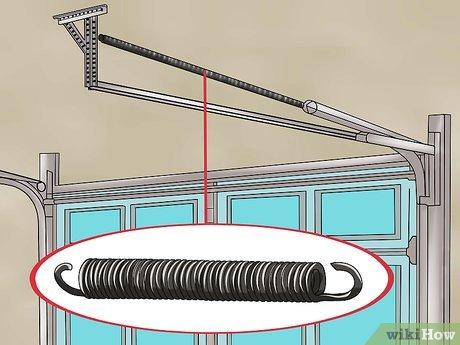Unlock the secrets to optimal garage door performance with our comprehensive guide to Proper Garage Door Spring Tension. Learn how to maintain and adjust spring tension for smooth and safe operation!

Introduction
Proper garage door spring tension is essential for ensuring smooth and reliable operation of your garage door system. Whether your springs are too tight or too loose, improper tension can lead to issues such as uneven door movement, premature wear and tear, and safety hazards. In this guide, we’ll delve into the importance of proper garage door spring tension and provide practical tips for achieving and maintaining it.
Understanding Garage Door Spring Tension
Garage door springs play a critical role in counterbalancing the weight of the door and facilitating its movement. There are two main types of garage door springs:
- Torsion Springs: Mounted above the door opening, torsion springs wind and unwind to lift and lower the door.
- Extension Springs: Located above the horizontal tracks on either side of the door, extension springs stretch and contract to support the door’s weight.
Proper tension in these springs is crucial for balanced and controlled door movement.
Signs of Improper Garage Door Spring Tension
Recognizing the signs of improper garage door spring tension is the first step toward addressing potential issues. Common indicators include:
- Difficulty Opening or Closing: If your garage door feels unusually heavy or requires excessive force to open or close, it may indicate that the spring tension is incorrect.
- Uneven Movement: An unbalanced door that tilts or jerks during operation often points to uneven spring tension.
- Noisy Operation: Excessive squeaking, grinding, or banging noises when operating the door can be a sign of spring tension problems.
- Visible Wear or Damage: Inspect your springs regularly for signs of wear, damage, or rust, which can affect their performance.
Achieving Proper Garage Door Spring Tension
Properly adjusting garage door spring tension is a job best left to trained professionals due to the high risk of injury and property damage. However, there are some general guidelines to keep in mind:
- Regular Maintenance: Schedule routine inspections and maintenance checks for your garage door system to ensure that springs are in good condition and properly tensioned.
- Leave Repairs to the Experts: If you notice any signs of spring tension issues, such as those mentioned above, refrain from attempting DIY repairs. Instead, contact a qualified garage door technician to assess and address the problem safely.
- Avoid DIY Adjustments: Attempting to adjust garage door spring tension without proper training and equipment can result in serious injury or damage to your property. Always rely on professional technicians for spring adjustments.
Conclusion
Proper garage door spring tension is critical for ensuring the safe and efficient operation of your garage door system. By understanding the signs of improper tension and knowing when to seek professional assistance, you can maintain a smoothly functioning door and avoid costly repairs or accidents.
Read too: Why Are My Garage Doors Opening By Themselves? Troubleshooting Guide



Leave a Reply